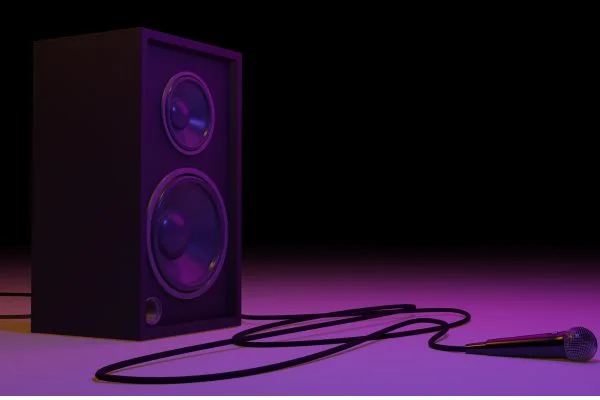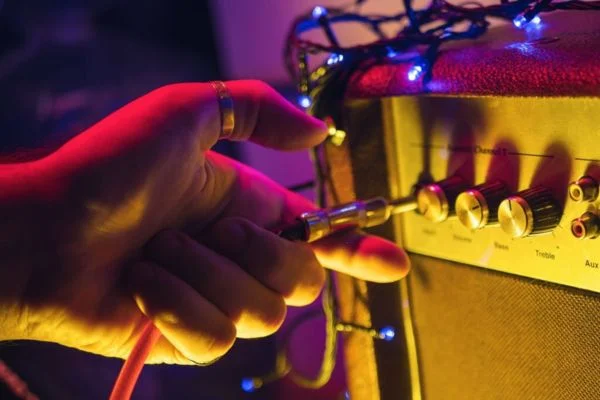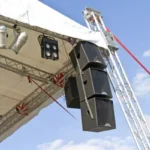Want to know, How Far Can You Run 16 Gauge Speaker Wire? If you’ve ever worked on your audio setup, you know there is a lot to consider. It can be a bit overwhelming, from the type of speakers to the size of the room and more. One crucial factor to consider is how far your speaker wire needs to be. This post will cover what you need to know about 16 gauge speaker wire and how far it can go.
What Is 16 Gauge Speaker Wire?
16 gauge speaker wire is copper wiring used to connect audio components like amplifiers, receivers, and speakers. It’s made from tiny strands of copper (or other materials) with insulation around it that helps protect against electrical interference.
The “gauge” refers to the thickness of the wire—the lower the number, the thicker the wire, which means more conductivity and less resistance.
Also Read: How Many Watts For Outdoor Speaker?
The Benefits of Using 16 Gauge Speaker Wire
One of the market’s most popular speaker wires is a 16 gauge speaker wire. This type of wire is versatile and easy to work with. It’s also highly durable and has low resistance, which means it can carry more current than thicker wires like 14 or 12-gauge wires. Additionally, it is relatively inexpensive and widely available at most hardware stores.
In terms of performance, the 16 gauge speaker wire is good. It has a higher power rating than thicker wires, meaning it can handle high-powered systems without issue. Plus, because it has a lower resistance than larger cables, it allows for more apparent signal transmission with less noise interference. All in all, these qualities make 16 gauge an excellent choice for any audio system setup.
Also Read: How To Power Outdoor Speakers?
How Far Can You Run 16 Gauge Speaker Wire?

The answer depends on several factors, including the length of the run, power output from your amplifier, the frequency response of your speaker system, and impedance matching between source and load outputs. Generally speaking, 16 gauge speaker wires are suitable for runs up to 100 feet in length without any significant voltage drop or loss in sound quality.
For shorter runs (less than 25 feet), a 14 gauge wire is recommended as it offers better conductivity over longer distances due to its thicker build. Conversely, 18 gauge wire may be suitable for shorter runs but should only be used for runs up to 50 feet due to its thinner build, which results in higher resistance over longer distances.
Depending on your setup configuration and power requirements, you may need an even thicker gauge of cables, such as 12 or 10 gauge, for long-distance installations or high-power applications such as subwoofers or outdoor loudspeakers; however, these are exceptional cases where a professional should be consulted before making any changes or additions.
Also Read: How To Choose Outdoor Speakers?
What is The Maximum Distance Of The Speaker Wire?
Speaker wire is essential when setting up any sound system, and not having enough or too much of it can cause huge problems. The maximum recommended distance of speaker wire can vary greatly depending on the gauge or thickness, the type of cable, and the voltage being carried by the wire.
As a general rule, keep the length to less than 300 feet for the 16-gauge copper wire running at 8 ohms. However, if you’re dealing with a more complex setup or with some very specific needs, then an expert in speaker wiring should be consulted to get an accurate assessment of the appropriate maximum distance for your particular setup.
Also Read: What Is A Good Wattage For Outdoor Speakers?
How Many Watts Can 16 Gauge Wire Handle?
With 16 gauge wire, you can expect to handle up to a maximum of 20 amps and 40 watts. This makes it an excellent fit for most lighting projects since many light fixtures need far less amperage than that in order to work correctly.
That’s not all, though – 16 gauge wire is also used for small appliances in some cases, as well as low-current electrical installations such as doorbells. As a result, it is pretty versatile, making it an accessible choice in a range of applications.
What’s more – when you have a large area where the cable will run through multiple walls, 16 gauge wiring will be much lighter and easier to manage than its thicker counterparts.
Also Read: How Many Watts Do You Need For Outdoor Speakers?
Conclusion
Knowing How Far Can You Run 16 Gauge Speaker Wire is essential if you want to get optimal sound performance from your audio system without having significant voltage drops along your cables due to their length. Generally speaking, 16 gauge speaker wires are suitable for runs up to 100 feet in length.
In contrast, thicker gauges such as 14 or 12 are necessary for longer runs or high-power applications such as outdoor loudspeakers or subwoofers where extra conductivity is needed. Always consult with an experienced audio technician before making any changes or additions to ensure that your audio system operates optimally at all times!



